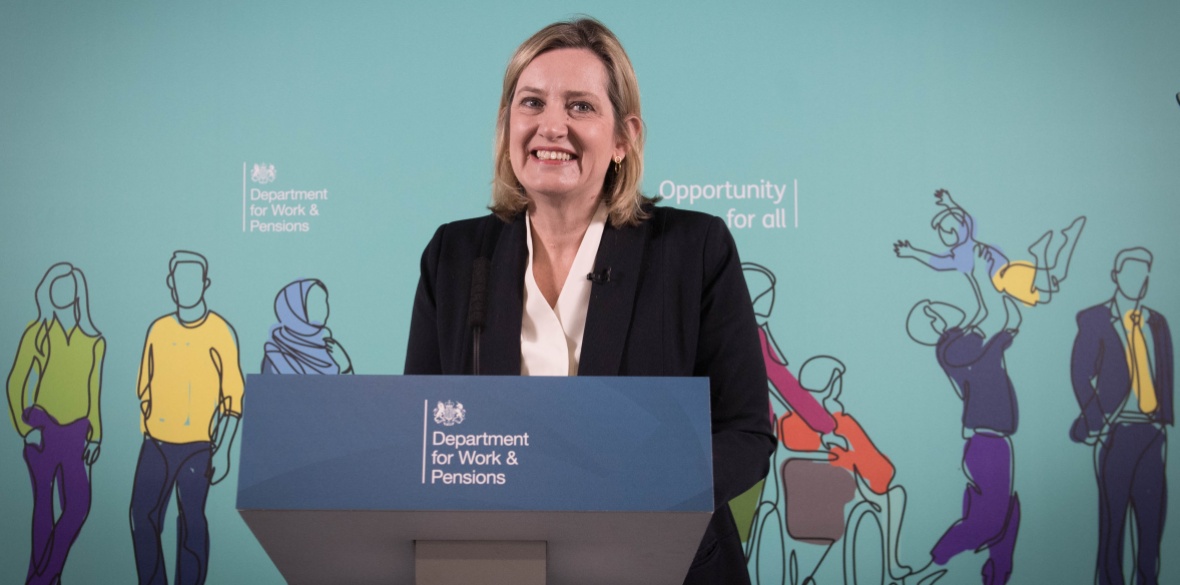This is the last article you can read this month
You can read more article this month
You can read more articles this month
Sorry your limit is up for this month
Reset on:
Please help support the Morning Star by subscribing here
In March, Amber Rudd extended the Department for Work & Pensions (DWP) contract with US corporation Maximus until 2021. The DWP pays Maximus about £150m a year to test disabled people for benefits with the “Work Capability Assessment.”
If Maximus says claimants are “fit for work,” they can’t get the most important benefit, the “Employment & Support Allowance.” There is a deep well of anger against Maximus in Britain, because disabled people say their judgements are mean, perverse and shoddy. The company makes millions, while claimants lose benefits after humiliating tests.
But Maximus are smirking all the way to the bank. Poor performance is nothing new to the firm. But grabbing public-sector contracts has turned them from a small business founded in 1975 to a corporate giant with a $2.3billion turnover.
The big money doesn’t show the firm does a good job. Maximus are currently in the middle of another scandal in their native US. In Kansas, state leaders have been wrestling with Maximus’s poor performance on a “Medicaid” contract for three years.
Medicaid is the centre of America’s very limited public health system, funding some health services for the poorest citizens. The number of Americans entitled to Medicaid was expanded by “Obamacare” in 2010. Medicaid is means-tested, so increasing the numbers eligible also increased the amount of means testing. This is big business for Maximus, which says it is the “government’s go-to leader in providing eligibility determination.”
In 2016, Kansas Governor Sam Brownback greatly expanded Maximus’s work on Medicaid eligibility testing. Brownback is a key right-wing Republican who has since been given a high-profile post by Donald Trump as “Religious Freedom Ambassador.”
Maximus had an existing contract for some simple eligibility testing for the Kansas Medicaid programme, known as Kancare. Brownback put Maximus in charge of the Kancare Clearing House, so they now administer most state Medicaid benefits. The result has been disastrous. Most Medicaid applications are supposed to be processed in no more than 45 days, but thousands of Kansans waited longer: Kansas had to submit to federal monitoring because these backlogs grew so large.
Delays particularly hit nursing homes relying on Medicaid funding: Cindy Luxem, president of the states’ nursing home trade group, told the Kansas City Star: “It’s just been a cluster-mess for everybody.”
Kansas Department of Health boss Jeff Andersen told the Associated Press that Maximus “underbid in an effort to get the contract, and in many cases, Maximus was not adequately staffed throughout this contract.” Democrat Governor Laura Kelly has replaced Sam Brownback. She announced this year Kansas will employ hundreds of extra staff to replace Maximus, beginning in July.
Maximus’s Kancare cock-up is a setback for the firm, but it has good reason to expect more work.
President Trump plans making Medicaid applications more complex and onerous. Trump proposes making Medicaid applicants show they are job-seeking or engage in “community engagement activities,” making the health benefit a kind of “workfare.”
Trump’s plan is based on one cooked up by Vice-President Mike Pence when he was governor of Indiana. Pence created his Work-for-Medicare plan with a consultant called Seema Verma, who Trump has now put in charge of Medicaid nationally. Maximus began administering “workfare” benefit programmes, so is well placed for extra contracts to administer a workfare-oriented Medicaid. They also were a former client of Seema Verma’s consultancy, which may help.
Kancare is not Maximus’s first controversial contract in the US. In 2007 Maximus paid a $30.5 million fine in the US over charges it cheated Medicaid, charging for work it had not done. However, this history has not stopped governments on both sides of the Atlantic putting Maximus in charge.












